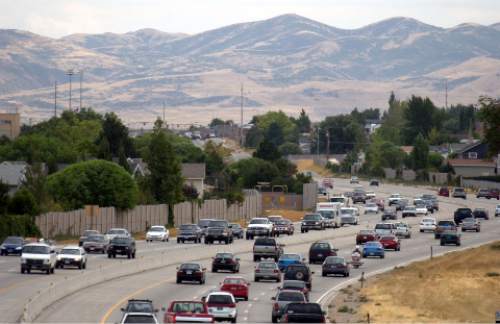This is an archived article that was published on sltrib.com in 2016, and information in the article may be outdated. It is provided only for personal research purposes and may not be reprinted.
Driving a lot of extra miles tends not to increase car insurance rates much in Utah. In fact, it typically brings just the second-smallest increase among the states, a new study says.
Research released Friday by InsuranceQuotes.com says that may save a lot of money for people with long commutes, but it hurts people who don't drive much by not offering them discounts.
It found that a policyholder in Utah who drives 15,000 miles a year typically pays just 1.02 percent more for insurance than one who drives 5,000 miles.
Only North Carolina has a smaller disparity, where extra mileage makes no difference in rates.
Nationally, the average difference is 8.61 percent, and ranges up to 26.15 percent in California.
The study said differences come because each state allows insurance companies to consider different factors as they set rates.
In California, for example, miles driven is one of only three criteria allowed for consideration along with the driver's safety record and years of experience. So when a motorist drives a lot, insurance companies take advantage to raise rates significantly.
In Utah, insurance companies can look at many more factors, including age, gender, marital status and more — so driving a lot doesn't result in a spike in rates.
"In most states, mileage just isn't that big of a factor since insurers on the whole don't love using it because it's difficult to track," said Eli Lehrer, president of the R Street Institute, a research organization based in Washington, D.C. The study adds that some experts and consumer advocates say low-mileage discounts should be more significant because the more that people drive, the higher the risk of an accident.
"You're talking about the difference between someone who only drives to church on Sunday and someone who has a 100-mile commute every day. Those are two very different drivers," Todd Berg, an insurance attorney, said in the study.
"All the data I've seen shows an incontrovertible correlation between miles driven and claim frequency, and to whatever extent insurers may not be using that in their rating process raises a lot of questions," he said. "It's very interesting that we don't see more price flexibility when it comes to this issue."



